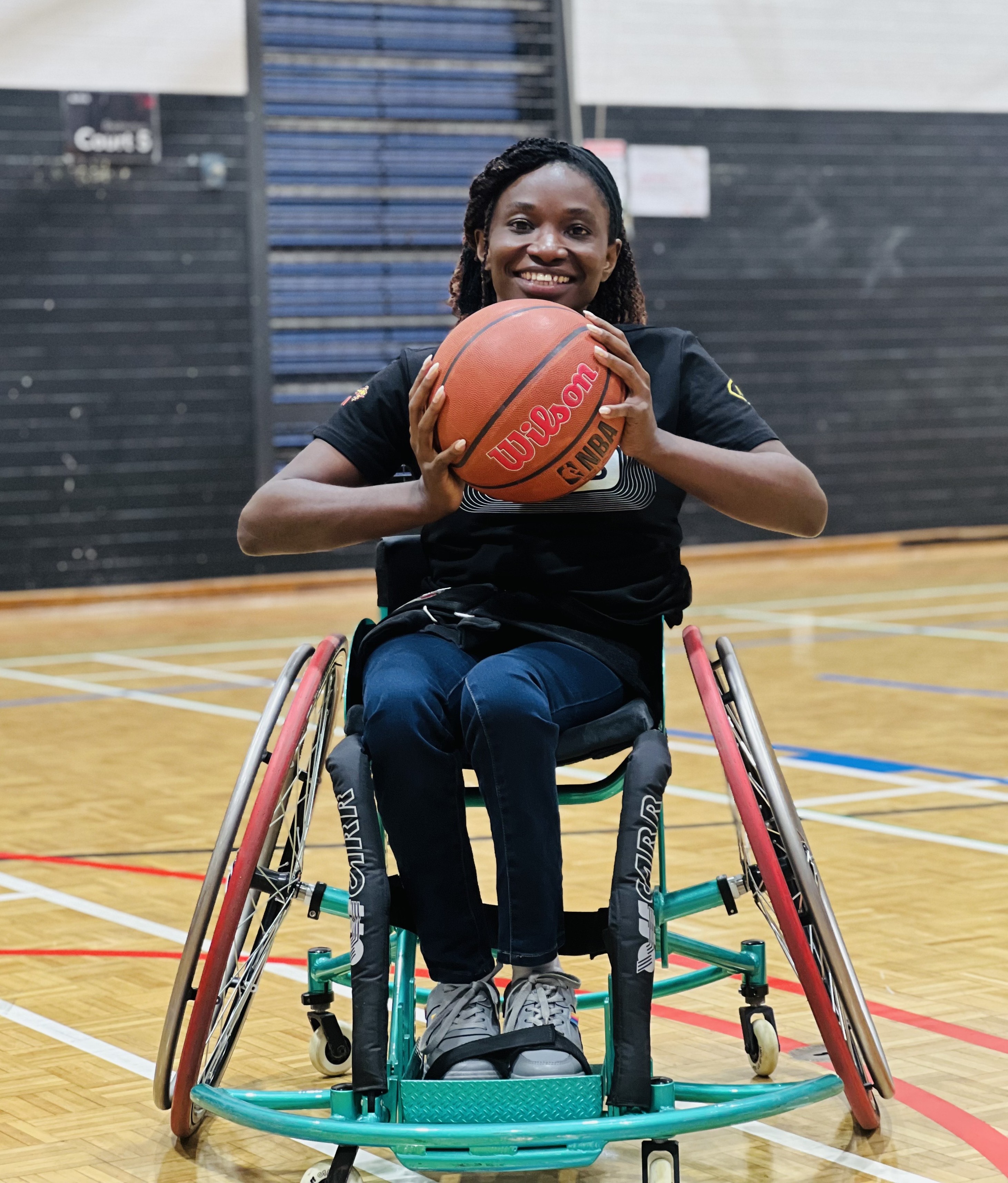In Uganda, current Australia Awards scholar, Victo Nalule is the Founder and Executive Director of Tunaweza Foundation, a Non-Government Organisation that seeks to empower people with disabilities to realise their full potential and live meaningful, independent lives.
This organisation seeks to create inclusive spaces, break down societal barriers, and foster self-reliance and dignity for all. Linked to this is the iHub, Uganda’s first inclusive innovation and technology hub for persons with disabilities. iHub is another initiative of Victo that ensures that the youth with disabilities receive training in digital skills like coding and graphic design and learn more about innovation and entrepreneurship. iHuB equips and prepares the youth with disabilities to thrive in the digital economy and nurtures their creativity and prepares them for employment in a tech-led world.
In Australia on award, Victo is studying a Master of Sustainable Development at Murdoch University. “Through my Australia Award I hope to gain advanced knowledge in inclusive development, urban planning, and disability policy to advocate for accessible infrastructure in Uganda and influence national policies that better implement disability rights,” she says.
Her goal is to ensure disability inclusion becomes a central element of sustainable development. With first-hand experience and the Tunaweza Foundation and iHub, Victo identified barriers to participation for people with disability in Uganda including:
- Inaccessible infrastructure such as with transport and public spaces. Many public buildings, road networks and transport systems including airlines and taxis lack the accommodation necessary to support mobility limiting access to education, healthcare, and employment.
- Digital and technological exclusion. Many people with disabilities have limited access to assistive technology, inaccessible platforms, and a lack of tailored digital skills training.
- Weak policy implementation and limited representation. Despite Uganda establishing disability rights laws, implementation has not progressed with a lack of engagement from people with disability in decision making.
Victo is confident that her time in Australia will allow her to observe and understand best practices in adopting inclusive infrastructure, developing accessible technology, and promoting inclusivity in governance to create change on return home.
Participation in sport
While being in Australia is a time to focus on acquiring knowledge and skills to contribute to development efforts in Uganda, Victo also realised that developing a sense of community and engaging in physical activity would allow for a smoother transition to life in Perth, Western Australia.
Through her university’s orientation activities, Victo discovered a disability basketball team at the on-campus sports centre. Joining the basketball team has allowed Victo to network with people who share similar experiences and challenges, so she feels less alone as she adjusts to life in a new country.
“I quickly developed a passion for the game as an initiative that promotes inclusion through sport and provides a platform for physical activity, teamwork and community engagement,” she says.
Although this has been a step outside of her comfort zone, Victo feels that as a wheelchair user being involved in sport activities provides an opportunity to stay physically active while also building valuable networks. For her it is a meaningful way to combine well-being with connection. It is this sense of community and shared purpose that truly motivates her.
Looking to the future
For Victo, her Australia Award education is just the beginning. Looking ahead, her vision for the Tunaweza Foundation is to expand its impact across Africa by working with a growing network of partners worldwide. To do this, the organisation’s vision focuses on three key areas:
- To scale up their inclusive and accessible digital skilling through the newly launched iHuB.
- To broaden their Competent Learner Model (CLM) Centre to reach more children with disabilities in remote rural areas, ensuring they receive the educational and physiotherapy support they need to realise their potential.
- To strengthen the humanitarian refugee action projects by providing inclusive emergency response services in settlements, where the organisation identifies and supports refugees with disabilities as they rebuild their lives with dignity and hope.
Through this Tunaweza Foundation (www.tunawezafoundation.org) strives to create a more inclusive, skilled, and resilient generation, championing equal opportunities for people with disabilities across Africa and beyond.
Victo during a community outreach in Busia, Eastern Uganda in 2023.

Victo enjoys playing basketball.



Connect with us
Any questions?
If you cannot find the answer on our FAQs page, feel free to get in touch by emailing .